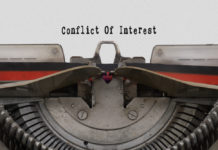The protester emailed its proposal, but the email wasn’t delivered because it exceeded the size limitation of the government’s server. Having not received the proposal by the deadline, the government refused to consider it under the late it late rule. The court, however, found that the solicitation did not specify a file limit for emailed proposals. Thus, the government had applied unstated criteria in rejecting the protester’s proposal. The court also found that the agency should’ve considered whether the emailed proposal fell under the government control exception to the late is late rule. While acknowledging a precedential split on applying the government control exception to emailed proposals, the court opined that the exception should apply to emailed proposals.
eSimplicity, Inc. v. United States, COFC No. 22-543C
Background
The Navy posted a solicitation seeking support for electromagnetic spectrum resources. The solicitation required proposals be submitted by April 25, 2022.
eSimplicity, Inc. submitted a proposal before the deadline, but the company never received a confirmation of receipt. When eSimplicity inquired about the status, it learned the proposal had been received by a DoD server but it had bounced back because the email exceeded the maximum file size.
The Navy informed eSimplicity that its proposal would not be considered because it had not been received by the time specified in the solicitation. eSimplicity filed suit with the Court of Federal Claims.
Analysis
Unstated Criteria
eSimplicity’s proposal did not reach its destination due to its size. eSimplicity, however, noted that the solicitation did not state a size limitation. Thus, eSimplicity argued, because the Navy effectively rejected its proposal based on the size of its email attachment, the Navy had applied unstated criteria.
The court agreed. The solicitation didn’t specify a file size limit. The government rejected eSimplcity’s proposal because it was late. It was late because the file was too large for the destination server. Accordingly, the government rejected the proposal due to file size, an unstated factor.
The government argued that bidders should have been on notice that oversized email attachments could be rejected. But the court reasoned that even if bidders should’ve been aware of some theoretical limit on file size, nothing in the record showed that eSimplicity had notice of what the actual limit was.
Government Control Exception
FAR 52.212-1(f)(2) sets forth exceptions to the late is late rule. An agency may accept a late proposal if (1) it was transmitted through electronic commerce and received one working day before the deadline, (2) it was received and under the government’s control, before the deadline, and (3) it was the only proposal received. eSimplicity argued its proposal had been received by the government’s server’s and thus should have been considered under the government control exception.
The government argued the government control does not apply to emailed proposals. Rather, only the “electronic commerce” exception applies to emails. The government reasoned that if the government control exception applied to email, then the “electronic commerce” exception would be superfluous.
The court noted a COFC split of the government control exception. Some cases have found the government control exception applies to emailed proposals while others have found the opposite. The court reasoned that the cases applying the government control exception to emailed proposals had the better argument. The court noted textual differences between the two exceptions. The government control exception requires receipt and control of proposals while the electronic commerce exception requires only receipt. Also, the government control exception requires receipt at a government installation designated for offers while the electronic commerce exception requires receipt at the initial point of entry to the government infrastructure.
Given the textual differences, the court opined that there had to be a situation where an emailed proposal could be received at the time needed to satisfy the electronic commerce exception but not at the particular server needed to satisfy the government control exception. This indicated that applying the government control exception to emails would not turn the electronic commerce exception into surplusage. The two exceptions may overlap but government control did not negate electronic commerce.
Remand
The court remanded the case to the Navy to reconsider its decision in light of the court’s conclusion that the Navy applied unstated criteria. If this did not lead to acceptance of eSimplicity’s proposal, the court ordered the Navy to consider whether the elements of the government control exception had rendered eSimplity’s proposal timely.
eSimplicity is represented by Eric A. Valle, Isaias “Cy” Alba, IV, Katherine B. Burrows, and Patrick T. Rothwell of PilieroMazza PLLC, The government is represented by Jana Moses, Brian M. Boynton, Patricia M. McCarthy, and Douglas K. Mickle of the Department of Justice as well as Shantay N. Clarke of the Navy.
–Case summary by Craig LaChance, Senior Editor




